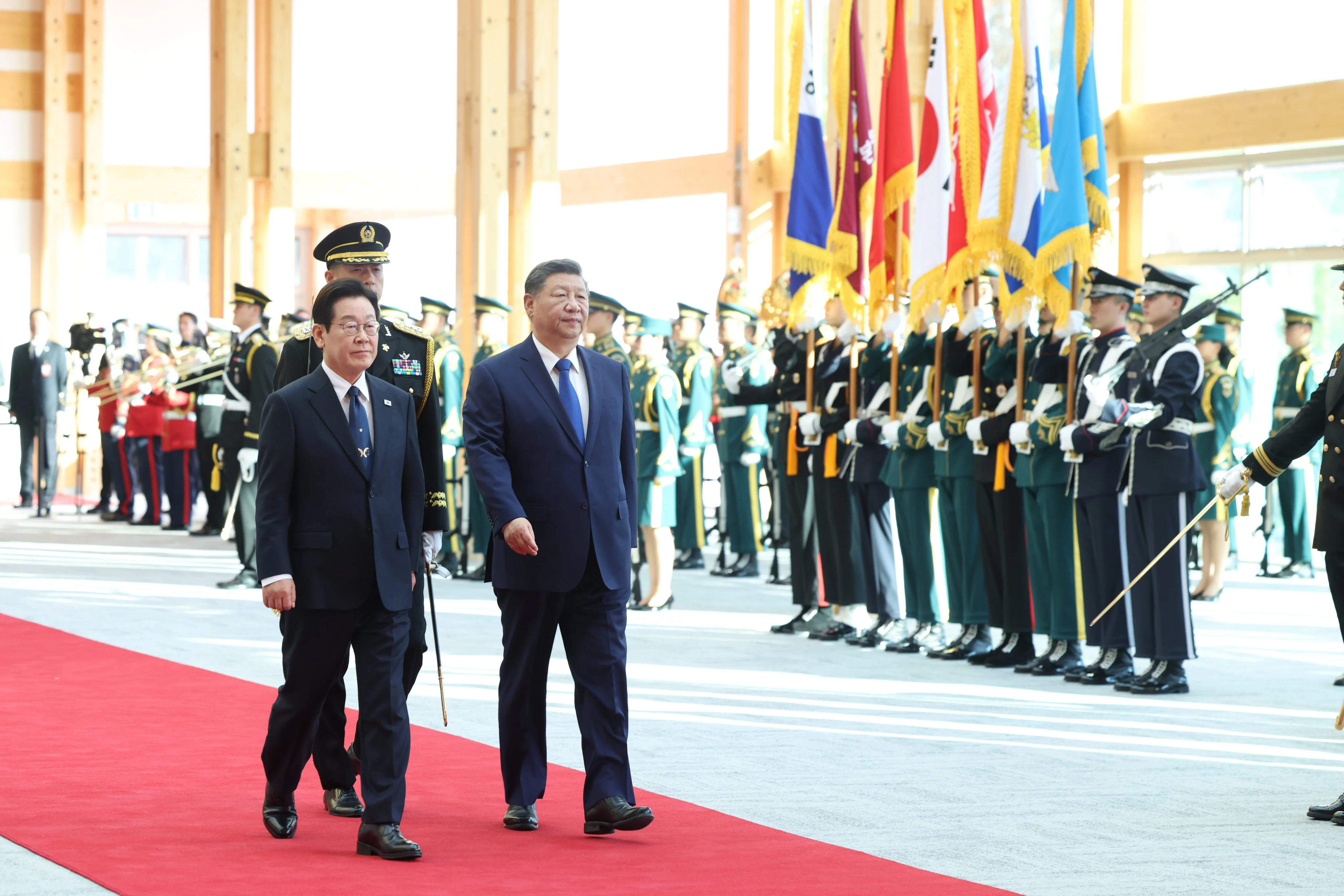Copyright scmp

Talks between the Chinese and South Korean leaders have renewed diplomatic momentum, but what happens next could hinge on how Seoul balances its relations with Washington, according to analysts. Chinese President Xi Jinping – on his first visit to South Korea in 11 years – met his counterpart Lee Jae-myung in Gyeongju last Saturday, on the sidelines of the Asia-Pacific Economic Cooperation summit. A lighthearted exchange before their state banquet drew media attention. After Xi presented Lee with a gift of two Chinese Xiaomi smartphones with South Korean-made displays, Lee quipped: “Is the communication line secure?” Xi laughed and smiled, then pointed at the phones and said: “You should check if there’s a back door” – preinstalled software that could be used to monitor the phone’s user – prompting laughter and applause from Lee. Their meeting ran for nearly 100 minutes, longer than scheduled, and was hailed by a senior South Korean official as a “complete restoration of bilateral ties”. During the talks, Xi and Lee reaffirmed the nations’ strategic partnership, with Xi emphasising that they were “inseparable partners” and urging South Korea to support the multilateral trading system. But of most significance was the fact that the two leaders met at all, according to Lee Ji-Young, an associate professor of international relations at American University in Washington. She said the meeting marked the beginning of a thaw in relations. “The summit itself would not have taken place without a degree of intent and anticipation towards improved ties,” she added. It comes after recent agreements were reached by Beijing and Seoul, including a pact to combat telefraud following a spike in cases involving South Koreans falling victim to scams in Cambodia. Analysts said that while the meeting marked significant progress, the relationship was being tested – and its future depended on whether external pressure could be overcome, especially as US-China rivalry intensified. Cho Sung-min, an associate professor who specialises in Chinese foreign policy at Sungkyunkwan University, said the outcome of the Xi-Lee talks was “beyond expectations”. He said the two leaders appeared to have skillfully avoided thorny issues that could have derailed the discussion, instead seeking to keep the atmosphere positive. Cho was referring to an announcement by Donald Trump that Washington would allow Seoul to build nuclear-powered submarines, a move that would bring South Korea into America’s closest security framework. It also marks a departure for the US from seven decades of non-proliferation doctrine on nuclear weapons. According to Li Kaisheng, vice-president of the Shanghai Institutes for International Studies, the improvement in China-South Korea relations will produce outcomes that benefit both nations. “But how far bilateral ties can progress will depend on whether its internal momentum is strong enough to withstand external geopolitical and economic pressures,” he said. There was no joint statement or press conference after the Xi-Lee talks – unlike when Xi visited South Korea in 2014. Then, the two sides reaffirmed a commitment to “firmly oppose nuclear weapons development on the Korean peninsula” in a statement, and they also held a joint press conference. Lee from American University said it was likely a relief for Beijing that Yoon Suk-yeol – who had pivoted towards Washington when he was South Korea’s president – was no longer in power. With Lee Jae-myung now in the top job, Beijing would likely try to cultivate a relationship with Seoul “that can possibly prevent South Korea from leaning too closely towards Washington or acting as a force multiplier for US strategic interests – particularly in the context of US-China rivalry for global influence”. Chung Jae-hung, director of the Centre for Chinese Studies at the Sejong Institute in Seoul, said while there was a more amicable atmosphere, there were still significant roadblocks in the relationship. He said there was divergence on economic cooperation – that Beijing was looking to work with Seoul on chips, artificial intelligence and other advanced industries but those opportunities were limited because of the US influence on South Korea. Chung said Washington giving Seoul the green light for nuclear-powered submarines was a potential flashpoint for relations between China and South Korea. “The US intention in approving the deal is clear: it’s aimed at China’s maritime capabilities,” he said. With South Korea equipped with nuclear submarines, the US “gains an additional tool” to counter China’s maritime expansion and nuclear submarine activities, according to Chung. He said it remained unclear after last weekend’s talks whether Beijing would lift an unofficial ban on South Korea’s entertainment industry. That boycott of South Korean films, TV shows and music began in 2016 after Seoul allowed the US to deploy a missile defence system in the country, which Beijing saw as a security threat. Li in Shanghai said the US was “pressuring other countries to join its containment of China, and if South Korea complies at China’s expense, Beijing will be forced to take countermeasures”. For the Lee administration, denuclearisation of North Korea remains a key priority. Lee has called for a phased approach, beginning with engagement and a freeze on the further development of nuclear weapons. He also sought Chinese help in resuming dialogue with the North, referring to recent frequent exchanges between Beijing and Pyongyang. “I am very positive about the situation in which conditions for engagement with North Korea are being formed,” Lee told Xi during opening remarks at the talks. “I also hope that South Korea and China will take advantage of these favourable conditions to strengthen strategic communication to resume dialogue with North Korea.” Xi said Beijing would “inject greater positive energy” into regional peace, but the Chinese readout of the meeting did not specifically mention denuclearisation of the Korean peninsula. Lee from American University said that as relations moved into areas such as supply chain issues – where Beijing and Washington diverge in their interests and positions – Seoul would face difficult decisions. “Beijing will likely want to observe how South Korea navigates these issues before committing to the next set of agenda items, such as supporting the resumption of dialogue with North Korea,” she said. According to Cho, the dynamics of US-China competition have hindered collaboration between Beijing and Seoul on denuclearisation through engagement with Pyongyang. But Li in Shanghai said action was needed from the US and North Korea. “If the involved parties expect China to take the lead while they remain passive then the issue will never be resolved,” he said.



